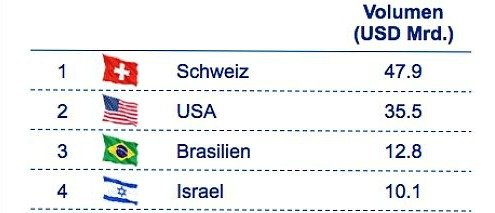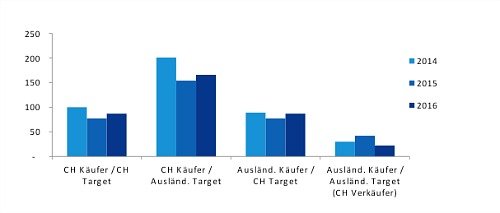China: Keeping Out Is No Option
Chinese investors are meeting fewer regulatory hurdles when they try to buy companies in Europe, than their own government imposes on foreign businesses.
The Chinese market remains important for the finance industry, despite occasional dips in growth, according to a recent analysis by top UBS bankers. The People's Republic not only shines with substantial rates of growth. The second-biggest economy also has an inherent dynamic that forces Western investors to build a presence in China.
 Kurt Haerri (pictured left), a China-expert and for many years representative for Switzerland's Schindler in the most populous country on earth, says: «If you are active in China, you are active globally.»
Kurt Haerri (pictured left), a China-expert and for many years representative for Switzerland's Schindler in the most populous country on earth, says: «If you are active in China, you are active globally.»
He spoke at a media event on Tuesday, organized by KPMG on China's investment drive. The opposite holds true too: the companies who don't go to China, aren't part of the global business world. For Haerri, who chaired the Swiss-Chinese Chamber of Commerce from 2006 through 2014, China is crucial for the success of companies.
The problem is that foreign companies don't get access to the Chinese market without agreeing to a joint venture with a local partner. The maximum stake for a foreign company is limited to 49 percent. The rule also applies to the finance industry.
UBS Plans in China
Insiders recently said that UBS, Switzerland's No. 1 bank, aims to increase its stake in a joint venture with a Chinese partner to 49 percent from a current 25 percent.
The West, and in particular Switzerland, are much more liberal than China. An example for this is the proposed takeover of Syngenta by state-owned ChemChina for $43 billion, announced in March 2016. The transaction would be the biggest Chinese takeover ever.
The Chinese appetite for foreign companies is the clearest M&A trend in recent years, according to a study by KPMG (see table below).
The difference in regulation between China and the rest of the world is an irritant, including for China-expert Haerri. But the Schindler manager says that Europe isn't without guilt. «The pressure from European politicians is far too insignificant,» he said at the conference.
Exception to the Rule
Compared with the tech industry, the Chinese are far more reluctant in their approach to the finance industry. The luxury goods company Citychamp Watch & Jewellery sprung a surprise when it announced the takeover of Bank Valartis in Liechtenstein.
«Chinese investors are very interested in Swiss finance institutes, in particular those with a banking license,» Patrik Kerler, head of M&A at KPMG, told finews.ch.
Closely Watched by Finma
But the federal regulator, Finma, retains an important say. It examines whether the conditions are met, including the maintenance of the banking license rules. The application fails if financial demands aren't met, in case of organizational deficiencies, insufficiently transparent ownership, or in case of a dodgy reputation.
The attempts by Chinese investors has always led to worries and calls for protectionist measures. But globally, Swiss companies still have bought more companies abroad than vice versa in the years from 2014 through 2016, KPMG said (see table above).




























